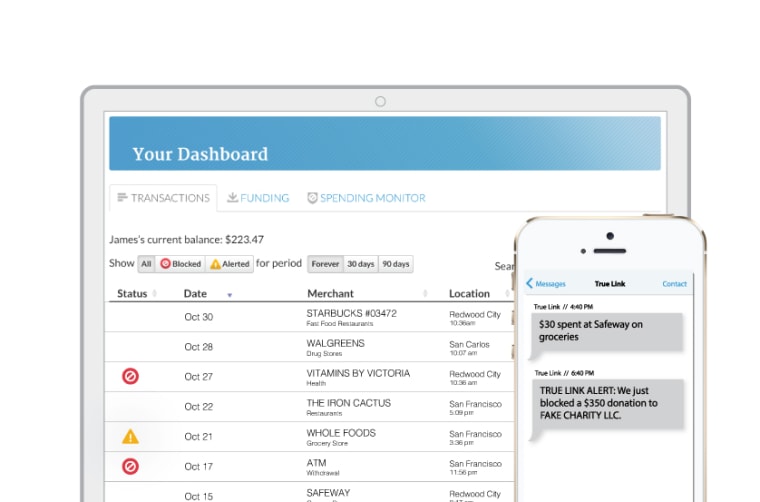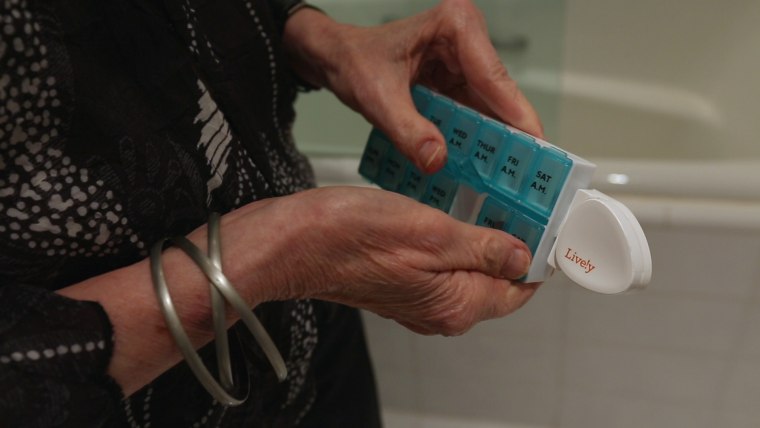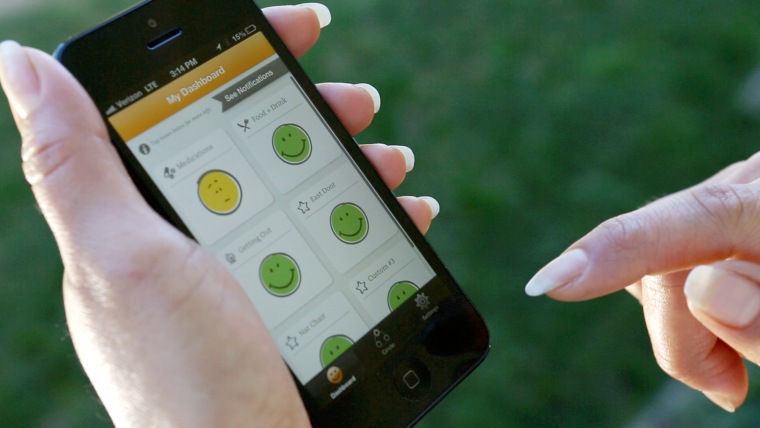Nora Lee doesn’t mind making the 160-mile drive through Southern California to the home of her 87-year-old dad, where she handles household chores. But her father’s failing health has turned that once-happy trek into an exhausting grind.

Long-distance caregiving, as Lee is learning, can devastate the collective peace of mind of all involved family members.
“My dad was forgetting to pay the bills, utilities were getting shut off, and he was getting collection notices,” said Lee, an ultrasound technologist from Salton Valley, California. Her father, Simon, lives in Fountain Valley.
“It was a nightmare and I couldn’t sleep because I was so worried. But my dad wants his independence and I figured there had to be some kind of technology that could help us,” Lee added.
The National Institute on Aging estimates that as many as 7 million Americans fit the definition of long-distance caregivers. Some adult children who provide care for aging parents live out of state, or even out of the country. Others, like Lee, live within driving distance, albeit a lengthy drive.
“Even in an urban area, it can take a while to get across town, so distance caregivers need to get some technologies in play to give them, at a minimum, some peace of mind,” said Kathleen Kelly, executive director of San Francisco-based Family Caregiver Alliance.
Indeed, today, there’s an array of beneficial apps and software, from digital tools that help organize the stuff of life to “smart” technologies such as sensors, smartphone monitors, and GPS — all designed to help people stay in their homes longer, while giving respite to caregivers.
To sort through the clutter of options, Family Caregiver Alliance recommends the best apps, websites and tools to provide caregivers and their loved ones with a dose of reassurance—(My Geo, Skype, and Google Chat) – or with ways to track medical matters (Health Vault, WebMD Health Manager.)
Silicon Valley remains a hub for many of these innovations, and some of the developments are intensely personal.
The “eureka moment” for San Francisco-based True Link co-founder Kai Stinchcombe came after he saw his own mother sifting through a financial mess involving his out-of-state grandmother—a woman who lost thousands of dollars to aggressive telemarketers and scammers.
“I would try and support my own mom by telling her that everything is going to be okay, but those were just words, and I figured I need to do something to make this easier for all those people out there who are worried about their own parents,” Stinchcombe said.
The True Link Card is set up online by a family member to reflect their loved one’s anticipated and appropriate spending habits. Algorithms developed by the company track transactions that are then matched to scams targeting the elderly, such as “miracle” products and unwanted subscriptions. Caregivers can block purchases at specific stores or merchant categories, and receive alerts of suspicious charges.

For Nora Lee and her dad, Simon, the algorithms gave them both a “lot of peace,” she said.
“My dad is a proud man who needed some help with finances,” Lee said. “And I needed some help to help him. That’s what technology is supposed to do.”
While the latest tech creations help caregivers manage their roles, nothing beats having a set of eyes on a parent who needs help.
When distance makes that difficult, sensor technologies may be the answer
“Sensors are pretty exciting and the technology is only going to get better,” said Gail Gibson Hunt, president and CEO of the National Alliance for Caregiving.
Sensor technology is already helping Suzy Pak and her sisters keep tabs on their mom and dad. Suzy and her family live in Lafayette, California. That’s about a five-hour drive from her 80-year-father, Song, and 71-year-old mother, Mary, who live in the family home in Santa Maria, California.
Her parents are managing independently. But Pak’s mom often stays at a condo near her daughter, and her father—who has vision problems — prefers the convenience and familiarity of the house in which he’s lived in for more than 40 years.
So Pak turned to another San Francisco-start-up called Lively, which provides unobtrusive, sensor technology to allow caregivers to check on their loved ones. Pak simply placed the sensors — about the size of quarters —on medications, the refrigerator door, a key chain, and other items that are used daily. No professional set-up was required.
An in-home hub receives activity information from the sensors and compares events with normal, daily routines. Alerts are provided when an activity doesn’t match routines.
Lively also just introduced a companion smart watch that includes reminders, a pedometer, and an emergency button that contacts a dispatcher and alerts family members.
“It’s so easy,” Pak said. “We know dad’s routine and if something seems not right, we get an alert. It’s all about peace of mind.”
Even her father described himself as a fan: “I think it’s wonderful. They can keep an eye on us, and it’s good to know they are looking out for our welfare.”
